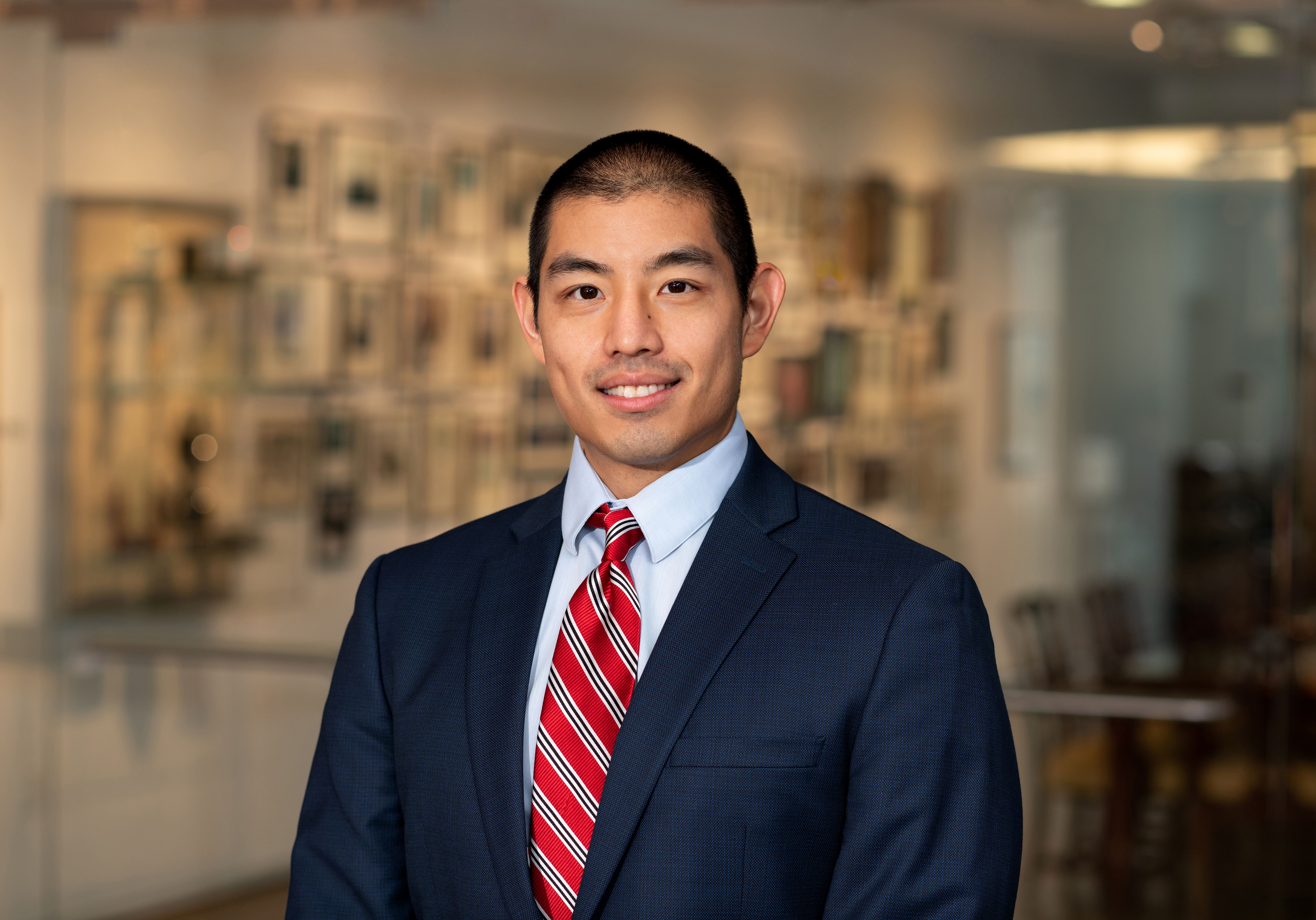Training the next generation

After five years doing general surgery at Baylor St. Luke’s Medical Center, Dr. Kevin Huang thought his long-term calling would be trauma surgery. Raised in Iowa by a physicist and an artist, the excitement and challenge of the Emergency Department appealed to the young doctor. His two-year fellowship in abdominal transplant doing adult and pediatric surgeries at Baylor St. Luke’s and Texas Children’s Hospital under Dr. John Goss, is changing all that.
As a fellow, Huang assists in a variety of procedures, including liver and kidney transplants. Knowing he is giving people a second chance at life is deeply gratifying – especially when it comes to pediatric cases. “Sometime they are just born with some genetic defect and you are able to give them their whole life back,” he says. “There’s nothing else like that.”
Huang recalls a 14-month-old boy whose liver had simply not developed properly, necessitating a transplant. The child’s skin had taken on the yellow tinge that indicates serious liver disease.
“This poor kids was less than 20 pounds and he’d been sick for months,” he says. “We kept trying to get a good liver for him, and it finally came through. And literally, as we put the last stitch in, the kids color normalized.”
Liver surgery, in particular, requires a high level of skill, says Huang. He compares his shift from general surgery to the fellowship, which for more than a decade has been supported in part by private donors, as technically challenging in a way he didn’t anticipate.
“These surgeries are on a completely different level,” he says. “You are sewing with tiny sutures the size of your hair, putting together tiny two millimeter vessels. There is nothing else like it. It’s a lot of interesting stuff, and it requires a lot of technical skill.”
Huang says the hands-on nature of his fellowship is different from other programs around the world. Goss insists that fellows be actively involved in cases, rather than passive observers. In the first year of his two-year fellowship, Huang, under close supervision, has been able to assist with more than 300 surgeries. He’s also been able to see firsthand the complex, multidisciplinary nature of organ transplant – starting with the medical review board collaboratively determining whether an organ is even suitable for transplant.
“I don't know many textbooks that can teach you how to make those decisions,” he says. “Seeing it here, seeing their thought process and seeing how they work as a team, I think that's very helpful. Dr. Goss is an incredible teacher and, of course, I have all these other attending physicians who are remarkable. He’s let me do a lot, and I think that’s very different from the experience that other fellows get.”
Goss views training the next generation of transplant surgeons as critical to the growth of Baylor St. Luke’s abdominal transplant program. That’s why the fellowship provides such a hands-on experience to young doctors.
“As the fellows progress from their first to second year, their levels of responsibility increase and we integrate them into the system as an integral part of the day-to-day functioning of the transplant team,” he says. “During weekly meetings, their input is taken at the level of junior faculty and they are treated as staff surrogates. Under the apprenticeship of experienced staff, I am seeing Dr. Huang, already an impressively skilled surgeon, mature into a future leader of this highly specialized field.”
Both Goss and Huang recognize the importance of donor support for the program.
“Philanthropy has been crucial to the growth of these young surgeons, which in turn means better future care for our patients today and in the future,” says Goss. “By supporting these fellowships, donors are helping us give the gift of live to these patients, who will go on to live longer, healthier lives.”